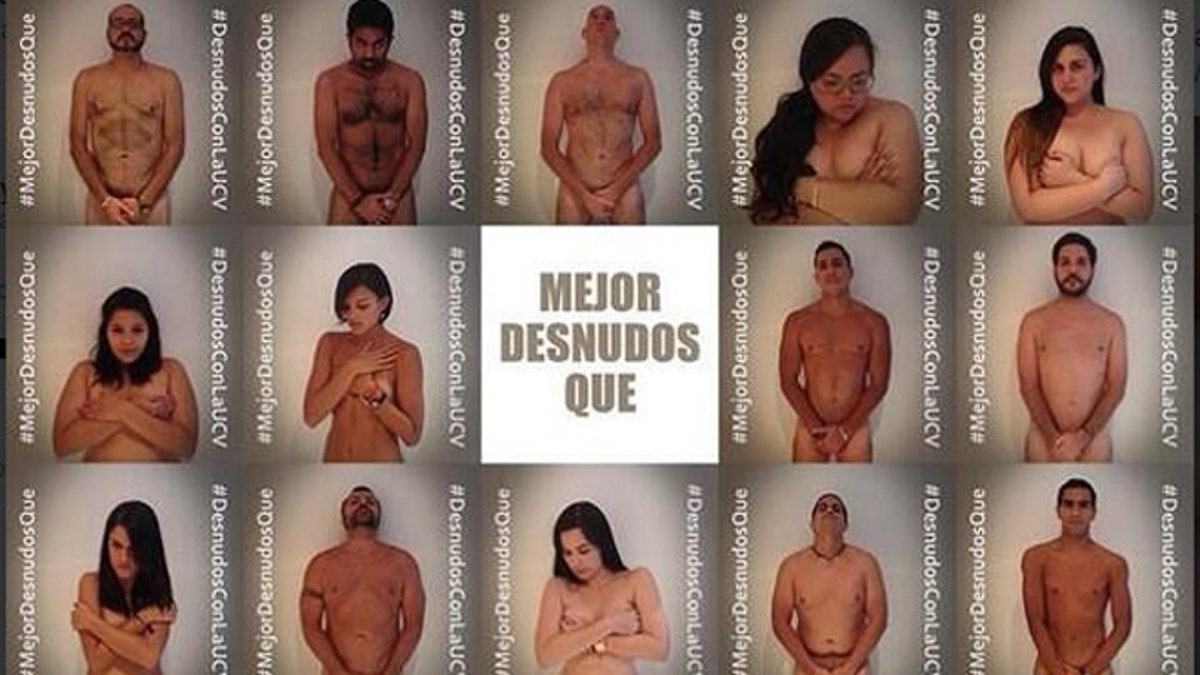
In an act of solidarity with a Venezuelan demonstrator who was stripped naked during a clash with pro-government demonstrators at the Central University of Venezuela (UCV) in Caracas, thousands of students are posting pictures of themselves stripped down or sharing the photos on social media to protest police brutality and repression by the government of President Nicolás Maduro.
["Better showing oneself naked than being shown naked because you're dead."]
The idea originated with Ricardo Cie, vice-president of a Venezuelan marketing firm, who tweeted a photo of himself covering his private parts with his hands. Cie then convinced 16 of his friends to go to social media and post similar pictures under the hastag #ConcluUCV.
The original 16 posts quickly went viral with the tweets gaining steam and going viral under a number of other hashtags, principally among them #MejorDesnudosQue and #DesnudosConLaUCV.
["If you are the one whom they tried to humiliate by taking off your clothes, I hope you see this social media initaitive."]
#MejorDesnudosQue (Better Naked Than) has been tweeted more than 180,000 times, #DesnudosConLaUCV (Naked with the Central University of Venezuela) has been used more than 113,000 times and #MejorDesnudosQueSinLibertad (Better Naked Than Without Liberty) has been posted almost 3,000 times, according to Mashable.
"I'm a mother of students, I send my support to everyone, long live the courageous students, heroes,” wrote one Twitter user who identifies herself as "eleis j."
President Maduro has done nothing to publicly discourage the violence by armed pro-government militants, loosely known as "colectivos," which are also blamed for scores more cases of beatings and intimidation in multiple cities. That includes a March 19 incursion into the architecture academy at the UCV in which some 40 masked men and women identifying themselves as government defenders bloodied at least a dozen students.
In fact, since the protests began, Maduro and his vice president have each welcomed pro-government "motorizados," or motorcyclists, to separate events at the presidential palace — a Feb. 24 rally and a "peace conference" on March 13.
Those violent tactics escalated when anti-government protests surged in mid-February. Fatalities since blamed on colectivo aggression have mostly involved university students, including a prominent student leader, Daniel Tinoco, shot in the chest March 10 in the western city of San Cristóbal, where the unrest began amid student outrage at alleged police indifference to an attempted sexual assault.
Follow us on twitter.com/foxnewslatino
Like us at facebook.com/foxnewslatino








































